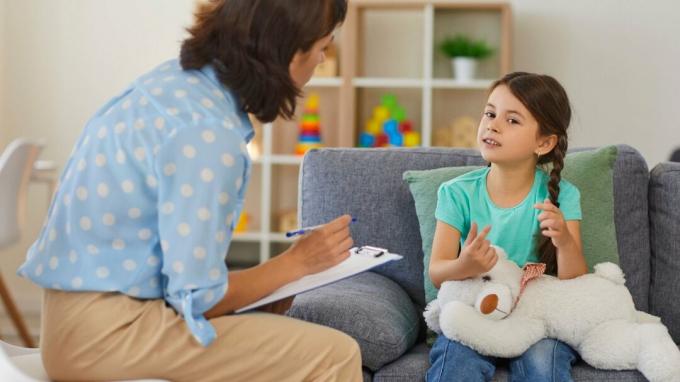Childhood Anxiety Disorder today: how should it be addressed?
The phenomenon of anxiety, which can be identified as an excess of the future in which we have difficulty focusing on the present, has increased especially in childhood. who resumes his classes in person in the return to presence. It is not unusual for children and adolescents to come to the clinic with various difficulties both at school and at home, where symptoms such as irritability, concentration problems, sleep hygiene problems, anger attacks and also physical symptoms such as muscle tension, stomach discomfort, sweating, difficulty to breathe.
Childhood generalized anxiety disorder (GAD)
These are some of the most common symptoms belonging to childhood generalized anxiety disorder or GAD, and in addition to the effect of returning to in-person, where it is likely that the child or adolescent has found themselves in a space of greater comfort, tranquility and convenience when maintaining their classes online from their homes, or on the contrary, it has meant a high level of exposure and discomfort to be present in front of their classmates in class daily.
However, There are other difficulties that can arise in this age range in addition to the aforementioned phenomenon., such as the occurrence of an event loaded with high levels of stress, such as the loss of a family member or loved one, parental divorce, as well as changes important in the person's life, such as moving to another city, entering a new educational establishment, and a history of abuse present in the child or Teen.

How is the therapy performed?
Now, regarding the psychotherapy process that can be carried out for this issue, The psychotherapist will initially be in charge of gathering as much background information as possible about the patient's current situation., resorting to interviewing him, as well as the adult accompanying him and, if necessary, an anamnesis of the child or adolescent will be taken.
Among the elements that can be worked on, once a comprehensive framework of the anxious elements in the person's life is established, it will be possible to develop various work strategies, such as helping the child understand the thoughts, visions and ideas that she may present regarding the stressors that are currently affecting you, whether it be your own life experiences or the behaviors of other people who may be affecting him.
Besides, You can work on recognizing and replacing the thoughts that generate panic to help the person establish a margin of control and approach. regarding those issues that affect you, so that you can have some control over the anxious episodes.
Pharmacological support can also be a favorable complement to psychotherapy that helps control symptoms. anxiety symptoms, where antidepressants and anxiolytics of a diverse spectrum can be included depending on the symptoms present. Treatments in turn can be either short or long term.
Furthermore, it is important to consider that in some cases when the present symptoms begin to worsen in the child or adolescent, this may present comorbidity with other mental health pathologies such as depression and substance abuse, the latter as a way to cope with those situations that generate higher levels of anxiety.
Conclusions
Now, When is it necessary for parents or responsible adults to take their child to psychotherapy? There is no single answer to this question, since it will depend on the symptomatology, its evolution, the time in which it is present. present in life and when it began to significantly affect their daily work, the support or not that they may be receiving, among others. factors.
However, basic elements that can be considered in addition to the symptoms presented are considering that the strategies that have been adopted as a family, as well as the child's or adolescent's own resources, are insufficient to face the anxious situation on a daily basis and require external help, which, as mentioned, can be established through psychotherapy and pharmacology, always in an articulated work to generate greater results.
Likewise, the evolution of GAD will depend both on the aforementioned factors, the development of coping resources in the person and also a very important element that I will address in a future document, which is cortisol, which is also related to the presence of stress.
However, and by way of conclusion, The evolution of childhood generalized anxiety disorder will depend on multiple elements, such as the severity of the present symptoms., which may define a treatment, from short to medium to long term.

